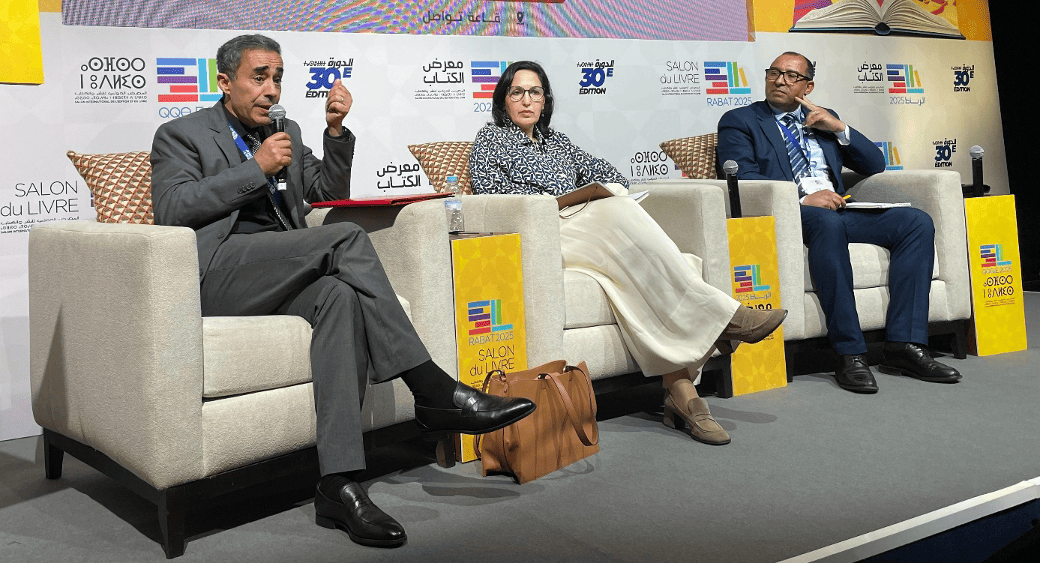
On April 25th, at the International Book and Publishing Fair (SIEL) in Rabat, the Higher Council for Education, Training and Scientific Research hosted a major institutional session titled "School and Culture". The session was moderated by Mohammed Yaqine.

On April 25th, at the International Book and Publishing Fair (SIEL) in Rabat, the Higher Council for Education, Training and Scientific Research hosted a major institutional session titled "School and Culture". The session was moderated by Mohammed Yaqine.

On April 25th, at the International Book and Publishing Fair (SIEL) in Rabat, the Higher Council for Education, Training and Scientific Research hosted a major institutional session titled "School and Culture". The session was moderated by Mohammed Yaqine.
Leila Benslimane, member of the council, addressed the cultural challenges faced by Moroccan youth, especially girls from rural areas after the El Haouz earthquake, highlighting initiatives to introduce cultural components into boarding schools. She stressed how globalization and digitalization have led to cultural standardization, emphasizing the urgent need to preserve cultural diversity. She then emphasized the necessity to take seriously the mental well-being of young people.
Drawing on philosophical references, Benslimane reminded the audience that culture transcends mere knowledge, encompassing linguistic, social, environmental, and digital dimensions. She called for a shared responsibility among schools, parents, and civil society to nurture this cultural foundation. In her view, culture is not only a matter of heritage but also a tool for empowerment and resilience, especially in times of crisis. By integrating cultural education into the daily lives of students, especially in affected regions, Benslimane argued that we can foster a sense of identity, belonging, and creativity. She concluded by stressing that rebuilding after a natural tragedy should not only involve physical reconstruction but also the restoration of emotional and cultural balance, which is essential for sustainable recovery and social cohesion.
Abdelouahed Boudehane, also member of the council, added that culture is the very essence of society, rooted in the individual and reflected through collective identity. He underlined that Moroccan identity, rich and historically anchored, must be cultivated within and beyond the school gates, stating, "Culture is the content; school is only a medium." Boudehane emphasized that education should not merely focus on academic instruction, but also serve as a vehicle for transmitting values, traditions, and a shared sense of belonging. He argued that fostering cultural awareness from an early age helps develop responsible citizens who are conscious of their roots yet open to the world.
Moreover, he pointed out the importance of adapting cultural education to local contexts while remaining attuned to global dynamics, ensuring that Moroccan youth are both proud of their heritage and equipped to navigate an increasingly interconnected world. In his intervention, he also called for stronger collaboration between cultural institutions, schools, and local communities, encouraging the development of inclusive cultural programs that reflect Morocco’s diverse regions and voices. For Boudehane, investing in culture is not an accessory to development but a cornerstone of national unity and social resilience.
The session ended on a strong note, affirming the indispensable role of culture in shaping both the individual and society, and urging all stakeholders to engage more deeply in this mission.
